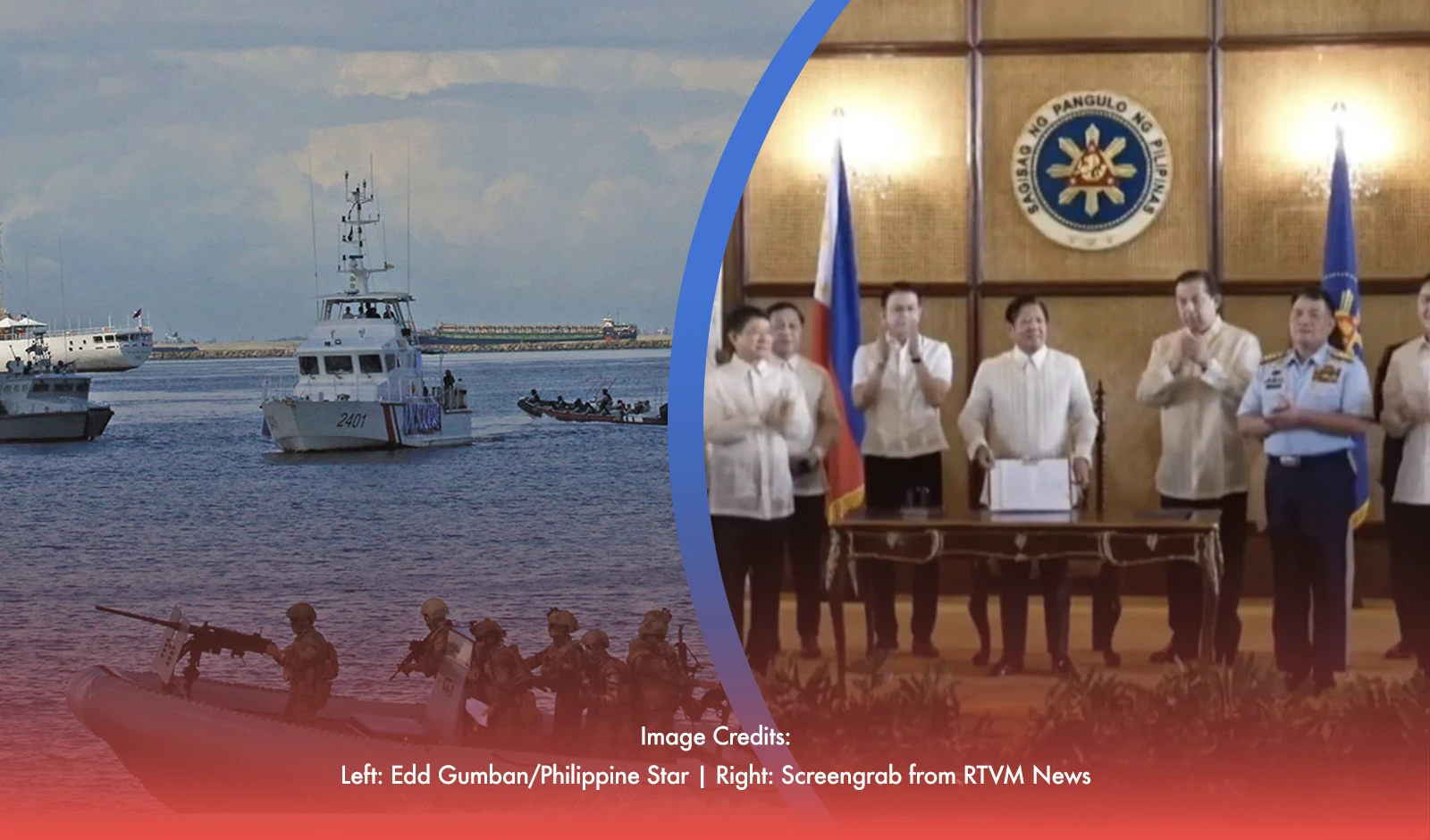President Ferdinand "Bongbong" Marcos Jr. recently signed two landmark laws—Republic Act No. 12064, the Philippine Maritime Zones Act, and Republic Act No. 12065, the Philippine Archipelagic Sea Lanes Act—further solidifying the country’s control over its vast maritime domain.
These new laws are crucial for asserting Philippine sovereignty, protecting marine resources, and facilitating international cooperation in regional navigation and security.
Clarifying Maritime Boundaries
The Philippine Maritime Zones Act (RA No. 12064) establishes clear maritime boundaries for the Philippines in line with the United Nations Convention on the Law of the Sea (UNCLOS). This law defines the country's territorial sea, exclusive economic zone (EEZ), and continental shelf, ensuring that the Philippines can assert its rights over these areas. It also provides a legal framework for managing marine resources, regulating foreign activities such as fishing and resource extraction, and enforcing environmental protections.
This move comes at a crucial time, as the Philippines continues to face territorial disputes in the South China Sea.
Regulating Foreign Passage
Meanwhile, the Philippine Archipelagic Sea Lanes Act (RA No. 12065) complements the Maritime Zones Act by establishing designated sea lanes for the passage of foreign military vessels and aircraft through Philippine waters.
While the Philippines maintains sovereignty over these archipelagic waters, the law ensures that foreign ships and aircraft can pass through designated routes in accordance with international law, particularly the United Nations Convention on the Law of the Sea and the Convention on International Civil Aviation (Chicago Convention). This framework balances the nation’s security concerns with the rights of international navigation.
A Step Toward Regional Stability
These new laws not only reinforce the Philippines' legal rights but also contribute to regional security. As tensions continue to rise in the South China Sea, these acts help ensure the Philippines can protect its maritime interests while fostering cooperation with neighboring countries and global powers. By defining its maritime zones and regulating foreign passage, the Philippines is positioning itself as a responsible leader in maintaining peace and stability in the Indo-Pacific region.








